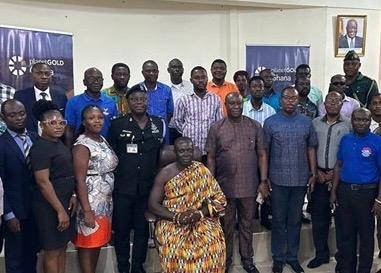The Environmental Protection Agency (EPA), has embarked on a project to phase out the use of mercury in the Artisanal and Small-scale Gold Mining (ASGM).
The project involved a series of engagements and dialogues held with key stakeholders and ASGM value chain actors through the Global Environment Facility (GEF)-funded planetGOLD project in some mining communities in the country.
According to Mr Lovelace Sarpong, a project coordinator at the EPA, the GEF-funded planet GOLD Ghana project was launched in 2022 to transform the ASGM) sector, by minimising the risks associated with mercury use, while improving financial inclusion into a formalised economy.
He was speaking at a stakeholder dialogue Tuesday at the Wassa Amenfi West and Prestea- Huni Valley Pilot Districts of the Western Region, to foster understanding, establish partnerships and deepen existing collaboration.
Mercury, he said, had traditionally been used to extract gold from ore, due to its effectiveness, however, its toxic properties posed serious risks to human health and the environment.
Mr Sarpong said it was imperative to prioritise the development of a sustainable community of practice for ASGM through multi-stakeholder partnerships.
“When we are able to achieve the mercury-free technologies in the system, it will make gold extraction and processing environmentally safer and protect public health, while the Code of Risk mitigation for ASM engaging in Formal Trade will enhance the participation of miners in and access to the international gold market,” he affirmed.
The Project Coordinator underscored the importance of gender-inclusivity in addressing the specific needs and contributions of women inclusiveness to sustainable outcomes for communities and the environment, particularly in the pilot districts.
The Water Resources and the Minerals Commission, Ghana Health Service, COCOBOD, Ministry of Food and Agriculture, Ghana Police Service, and the Ghana Immigration Service participated in the dialogue.
BY CECILIA LAGBA YADA

